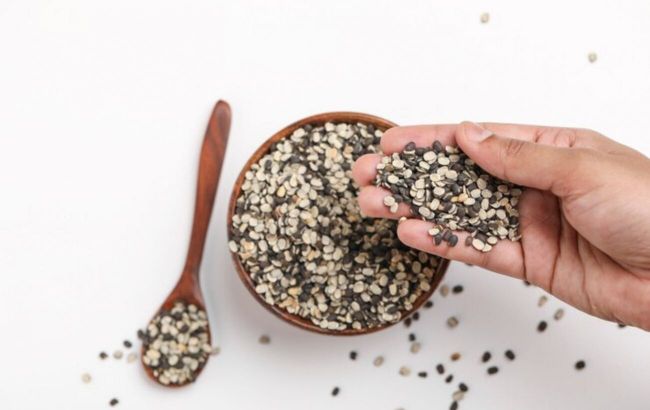What seeds beneficial for health: Tips from nutritionist
 What seeds are good for health (photo: Freepik)
What seeds are good for health (photo: Freepik)
Not many people think about the benefits of seeds, which should also be part of the diet. They contain many beneficial substances for the body and even help prevent diseases, according to Ukrainian nutritionist Vira Kuryn.
Why seeds are beneficial
According to the expert, the entire life potential of a plant is contained within this small seed.
Seeds are incredibly nutritious and densely packed products. Nature has also protected plants by creating a special protective layer around the seed. Therefore, it is very important not only to soak the seeds in water but also to thoroughly rinse them before consumption.
However, the nutritionist advises soaking the seeds for at least a few hours, ideally overnight.
4 types of seeds
Pumpkin seeds
Such seeds are rich in vitamins, including zinc, magnesium, fiber, antioxidants, and valuable monounsaturated fatty acids. They also have anti-inflammatory properties and act as diuretics.
The benefits of pumpkin seeds for men are due to their high zinc content, which improves fertility and reduces the risk of developing prostatitis. They are also beneficial for women, improving hormonal balance and easing unpleasant symptoms during menstruation and menopause.
Chia seeds
Chia seeds are rightly considered a superfood due to their high content of antioxidants, minerals, fiber, and omega-3 fatty acids. The nutrients in these seeds can have a positive impact on heart health, strengthen the skeletal system, and normalize blood sugar levels.
Additionally, chia seeds contain manganese, magnesium, calcium, and fiber.
Flax seeds
Flax seeds contain essential amino acids like leucine, arginine, glycine, aspartic acid, and glutamic acid, which are crucial for heart health and the immune system. They also provide manganese, magnesium, calcium, and fiber, which help prevent spikes in blood sugar levels and promote digestive health.
Hemp seeds
Hemp seeds are the richest plant source of nutrients, protein, polyunsaturated fats, and amino acids on the planet. Nutritionists note that hemp seeds provide high-quality plant protein, magnesium, omega-3 fatty acids, and nearly all essential amino acids, as well as vitamins B, A, C, and E.

